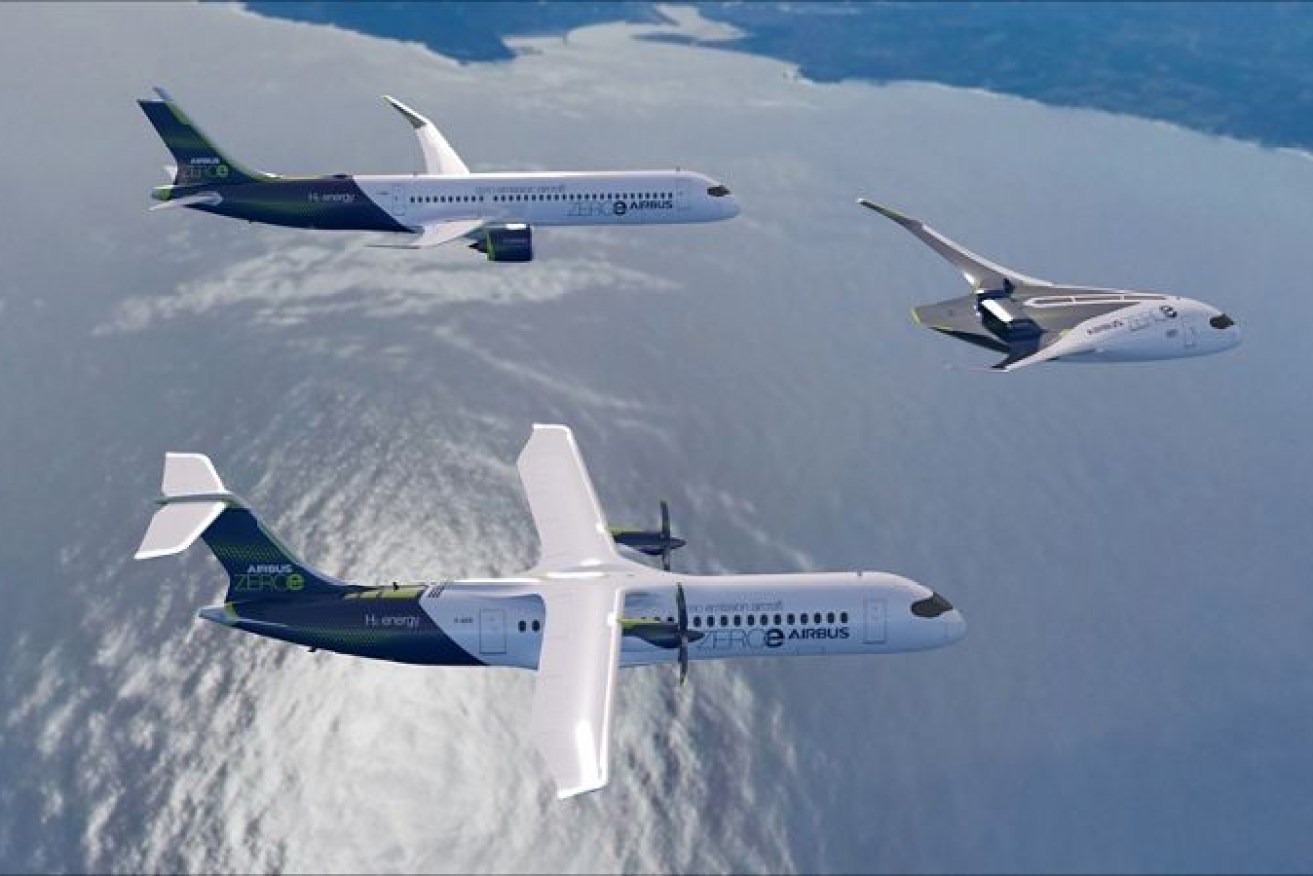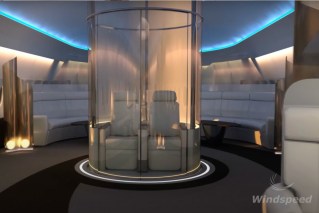Are zero-emission planes the future of air travel? Airbus touts hydrogen-powered ‘ZEROe’ aircraft


Airbus has unveiled three zero emission concept aircraft named ZEROe, which it says could take to skies in 2035. Photo: Airbus
Airbus has unveiled plans for a “zero emission” hydrogen-fuelled aircraft that could take to the skies in 2035.
But while the technology shows promise, it’s unlikely to completely replace fossil fuel-powered planes any time soon.
Airbus this week released three prototypes for the hybrid aircraft named ZEROe, which will be “powered by hydrogen combustion through modified gas-turbine engines” with liquid hydrogen “used as fuel for combustion with oxygen”.
“At Airbus, we have the ambition to develop the world’s first zero-emission commercial aircraft by 2035,” the firm proclaimed.
“Hydrogen propulsion will help us to deliver on this ambition.”
The announcement comes as the air travel industry faces increasing pressure to curb its carbon footprint.
“Aviation is one of the most challenging areas of the economy to reduce emissions,” ClimateWorks Australia program manager Rob Kelly said.

Airbus’ ZEROe “will be very valuable in moving the sector towards a net zero pathway”, Mr Kelly said.
“Hydrogen is an incredibly important part of the transition across much of the economy, particularly for future emissions reductions in steel, chemicals and heavy transport.”
The hydrogen technology spruiked by Airbus has “been in the mix for quite some time”, University of Sydney chair in transport and logistics management Rico Merkert explained.
“With COVID hitting airlines globally there was, particularly in Europe, a lot of government support that went into development, stipulating that airlines must become greener: Less carbon emissions, less fuel-hungry aircraft,” Professor Merkert said.
Advancements in hydrogen aircraft technology have been made in recent years, but major limitations remain.
“The issue with hydrogen aircraft is they need to have relatively high energy density fuel. Similar with electricity, it’s a bit tricky, particularly for take-off and landing,” Professor Merket explained.
“You want to have that high energy density otherwise you carry around a lot of fuel or hydrogen just to keep this thing flying. So you fly a lot of water without having a single passenger on board.”
The hybrid model proposed by Airbus may help address this issue, but hydrogen aircraft also require “a lot of infrastructure on the ground, and they can’t fly that far”, Professor Merkert said.
For long-haul flights that’s the wrong technology.
“So you’re probably looking at fairly short-haul flights, 3000 to 4000 kilometres which would be good for domestic flights in the Australia context but not international.”
In light of this, the timing of Airbus’ announcement may have more to do with public relations than it does with the readiness of the technology.
“It seems to be good timing for Airbus to come out with these three new prototypes to draw your attention away from the carbon emissions with something that could potentially be the solution to that problem,” Professor Merkert said.
“When and if they release any results from those studies is up to them.
“They’re saying ‘We’re working on something, we’re getting there, and we seem to be on the right path’. So it’s at least one of the options that should be in the mix.”
‘Flight to nowhere’: Qantas’ pandemic joyride
Concern over carbon emissions hasn’t stopped passengers from flocking to a special pandemic “flight to nowhere”.
The seven-hour Qantas flight sold out in just 10 minutes on Thursday, with 134 people paying between $787 and $3787 for a ticket to the special scenic joyride.
Passengers on the Boeing 787 Dreamliner, which departs and returns to Sydney on October 10, will get a bird’s-eye view of some of Australia’s most spectacular landmarks, including Uluru and the Great Barrier Reef.
Virgin Australia ramps up domestic services
In welcome news for travellers, Virgin Australia has announced that it will be ramping up its domestic services in response to border restrictions easing.

Virgin is ramping up its domestic flights as COVID border restrictions ease.
On Tuesday, the airline announced that it would be putting on more domestic flights in October, with residents of NSW and the ACT now able to travel to South Australia for leisure or work, and residents of the ACT able to travel to Queensland.
“We’re pleased that Queensland is reopening to ACT residents and that South Australia is reopening to both ACT and NSW residents, which is great news for tourism operators and the local economies,” Virgin Australia manager Russell Shaw said.
“We look forward to the safe reopening of further borders to help the tourism and aviation industries to recover and provide more opportunities for Australians to travel locally.”








